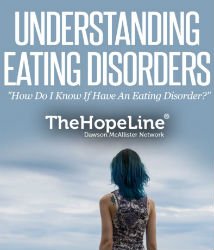Understanding Eating Disorders and Mental Health in NZ
In New Zealand, understanding the spectrum of eating disorders is crucial for promoting mental health and wellbeing. These disorders, which encompass a range of conditions such as anorexia nervosa, bulimia nervosa, and binge eating disorder, can significantly impact individuals and their families. The need for comprehensive eating disorder training is essential for educators, health professionals, and support networks to effectively identify and manage these complex issues.
Eating disorder training not only equips individuals with the tools to recognize the signs and symptoms but also fosters a compassionate approach to treatment and recovery. In New Zealand, initiatives aimed at increasing awareness and understanding of eating disorders are critical in reducing stigma and improving access to care, ultimately enhancing mental health outcomes for those affected.
Understanding Eating Disorders: A Broad Overview
Eating disorders are complex mental health conditions that can manifest in various forms, significantly affecting an individual’s physical and emotional well-being. In New Zealand, the prevalence of eating disorders has been rising, with many individuals struggling silently. According to Eating Disorders New Zealand, the spectrum of eating disorders includes anorexia nervosa, bulimia nervosa, binge-eating disorder, and others. Each type has unique characteristics and symptoms, but all share an intense preoccupation with food, body weight, and shape.
Anorexia nervosa is characterized by self-imposed starvation, leading to severe weight loss and malnutrition. Individuals may have an intense fear of gaining weight and often deny the severity of their low body weight. Bulimia nervosa, on the other hand, involves cycles of binge eating followed by compensatory behaviors such as purging, excessive exercise, or fasting. Binge-eating disorder is marked by recurrent episodes of eating large quantities of food, often accompanied by feelings of loss of control and distress. The understanding of these disorders is crucial for providing effective support and treatment.
In New Zealand, cultural attitudes towards body image and diet can exacerbate these conditions. The societal pressures around beauty and body image can lead to unhealthy eating behaviors, making it essential for communities to foster body positivity and acceptance. Education and awareness are paramount, particularly in schools and workplaces, where training on recognizing and addressing eating disorders can play a pivotal role.
Exploring Anorexia Nervosa: Symptoms and Consequences
Anorexia nervosa is one of the most recognized eating disorders, often manifesting during adolescence or early adulthood. Individuals with anorexia typically exhibit extreme weight loss, a distorted body image, and an intense fear of gaining weight. Symptoms can include significant calorie restriction, excessive exercise, and social withdrawal. The consequences of anorexia can be dire, affecting both physical and mental health.
Physically, anorexia can lead to severe complications, including heart issues, osteoporosis, and organ failure. Mentally, individuals may experience anxiety, depression, and an overwhelming sense of isolation. In New Zealand, the stigma surrounding mental health can prevent individuals from seeking help, making it imperative to create safe spaces for open discussions about eating disorders.
Support systems in New Zealand can include counseling and therapy, where trained professionals can provide the necessary care. Many organizations, such as Eating Disorders New Zealand, offer resources and training for both individuals and families affected by anorexia. Educating oneself on the symptoms and consequences of anorexia is the first step to understanding and combating this disorder effectively.
Understanding Bulimia Nervosa: Patterns and Impacts
Bulimia nervosa is characterized by a cycle of binge eating followed by compensatory behaviors, such as vomiting, using laxatives, or excessive exercise. This disorder often goes unnoticed, as individuals may maintain a seemingly normal weight and can be highly secretive about their eating behaviors. The emotional toll of bulimia is profound, often leading to feelings of shame, guilt, and anxiety.
In New Zealand, bulimia can be exacerbated by societal pressures regarding weight and appearance, particularly among young women. The media often glorifies thinness, which can influence self-esteem and body image. Understanding the patterns of bulimia is crucial for identifying the issue early and providing support to those affected.
Treatment for bulimia in New Zealand typically involves a combination of psychological therapy and nutritional counseling. Programs focused on eating disorder training equip healthcare providers with the necessary skills to recognize and treat bulimia effectively. Organizations like Eating Disorders New Zealand emphasize the importance of early intervention and ongoing support for individuals struggling with bulimia.
Binge-Eating Disorder: A Growing Concern
Binge-eating disorder (BED) is characterized by recurrent episodes of consuming large amounts of food accompanied by feelings of distress and a lack of control. Unlike bulimia, individuals with BED do not engage in compensatory behaviors, which can lead to significant weight gain and obesity-related health issues. The psychological impacts include feelings of shame, guilt, and low self-esteem.
In New Zealand, the rise of binge-eating disorder is alarming, as it is often overlooked compared to other eating disorders. Factors contributing to BED include emotional distress, societal pressures, and even biological predispositions. Understanding this disorder’s unique characteristics is essential for providing the appropriate support and treatment.
Treatment options for BED often include cognitive-behavioral therapy, which helps individuals understand their relationship with food and develop healthier coping mechanisms. Community support and education on healthy eating habits are also vital. Training programs focusing on eating disorders, such as those provided by Eating Disorders New Zealand, can help healthcare professionals offer effective interventions for those struggling with binge-eating disorder.
Cultural Influences on Eating Disorders in New Zealand
New Zealand’s diverse cultural landscape plays a significant role in shaping perceptions of body image and eating behaviors. Different cultures have varying ideals of beauty, which can influence the prevalence and presentation of eating disorders. For instance, Māori and Pacific communities may have different experiences and expressions of body image issues compared to European populations.
The intersections of culture, gender, and socioeconomic status can create unique challenges for individuals in these communities. Cultural stigma may prevent individuals from seeking help or discussing their struggles with eating disorders. Awareness and education around these issues are crucial in fostering an understanding of how cultural factors impact eating disorders.
Support networks within communities can provide culturally sensitive approaches to treatment. Engaging with local organizations, such as Eating Disorders New Zealand, can help bridge the gap in understanding and addressing eating disorders in diverse populations. Training programs tailored to cultural contexts can equip healthcare providers with the skills needed to support individuals from different backgrounds effectively.
The Role of Mental Health in Eating Disorders
Mental health plays a crucial role in the development and persistence of eating disorders. Conditions such as anxiety, depression, and low self-esteem often co-occur with eating disorders, creating a complex interplay that can hinder recovery. In New Zealand, the stigma surrounding mental health can impede individuals from seeking help, exacerbating their struggles with eating disorders.
Understanding the mental health aspects of eating disorders is essential for effective treatment. Psychological support, such as therapy and counseling, can help individuals address the underlying issues contributing to their eating behaviors. Cognitive-behavioral therapy (CBT) is particularly effective in treating eating disorders, as it focuses on changing negative thought patterns and behaviors.
New Zealand offers various resources for individuals struggling with mental health issues related to eating disorders. Organizations like Eating Disorders New Zealand provide access to information, support groups, and training for professionals to better understand the mental health implications of eating disorders. Promoting mental health awareness and providing accessible resources can help individuals on their path to recovery.
Support Systems and Resources in New Zealand
In New Zealand, a range of support systems exist to assist individuals grappling with eating disorders. From mental health services to community organizations, the landscape is evolving to include more comprehensive care options. Support networks play a pivotal role in recovery, offering both emotional and practical assistance.
Local organizations such as Eating Disorders New Zealand offer valuable resources, including helplines, support groups, and educational materials aimed at raising awareness about eating disorders. These resources can be instrumental for individuals and families seeking guidance and support.
Training programs for healthcare professionals are also essential to ensure that they are equipped to identify and address eating disorders effectively. These programs can provide the knowledge necessary to offer compassionate and informed care. Community initiatives that promote body positivity and mental health awareness can further enhance support systems, encouraging individuals to seek help without fear of judgment.
Creating a culture of understanding around eating disorders is vital for fostering recovery in New Zealand. By leveraging available resources and support networks, individuals can find the help they need to navigate their journey to recovery.
FAQs
What are the different types of eating disorders?
Eating disorders encompass a range of conditions, including anorexia nervosa, bulimia nervosa, binge eating disorder, and other specified feeding or eating disorders. Each type presents unique symptoms and challenges, affecting individuals differently.
How do eating disorders impact mental health?
Eating disorders can lead to severe mental health issues such as anxiety, depression, and low self-esteem. The unhealthy relationship with food and body image often exacerbates these conditions, creating a cycle that can be difficult to break.
What are the signs that someone may be struggling with an eating disorder?
Common signs include extreme fluctuations in weight, preoccupation with food, avoidance of social situations involving food, and changes in mood or behavior. If you notice these symptoms in someone, it may be a sign that they need support.
What resources are available in New Zealand for those struggling with eating disorders?
In New Zealand, various resources such as support groups, counseling services, and helplines are available for individuals struggling with eating disorders. Organizations like the Eating Disorders Association of New Zealand offer information and support to both individuals and their families.
How can eating disorder training help professionals in New Zealand?
Eating disorder training equips professionals, including healthcare providers and educators, with the knowledge and skills needed to recognize, understand, and effectively support individuals with eating disorders. This training is crucial for improving outcomes and creating a supportive environment for recovery.
What role does family play in the recovery process for eating disorders?
Family support is vital in the recovery process for individuals with eating disorders. Encouragement, understanding, and involvement can significantly aid recovery. Families are often encouraged to participate in therapy or support groups to better understand the challenges faced by their loved ones.
Are there any preventive measures for eating disorders?
Yes, preventive measures include promoting a healthy body image, encouraging balanced eating habits, and fostering open discussions about mental health. Education and awareness initiatives can help reduce the stigma surrounding eating disorders and encourage individuals to seek help early.
References
- Eating Disorders Association of New Zealand – A dedicated resource for understanding eating disorders in New Zealand, offering support, education, and advocacy for affected individuals and their families.
- Ministry of Health New Zealand – Eating Disorders – This government site provides an overview of eating disorders, their impact on mental health, and available health services in New Zealand.
- Mental Health Foundation of New Zealand – Understanding Eating Disorders – An informative guide on different types of eating disorders, their symptoms, and the mental health implications associated with them.
- University of Auckland – Eating Disorders Research Group – A research initiative focused on the causes, effects, and treatment of eating disorders, contributing valuable insights into mental health in New Zealand.
- Te Pou – Eating Disorders Guide – A comprehensive guide that discusses the different types of eating disorders, their impact on mental health, and best practices for treatment and support in New Zealand.










Recent Comments